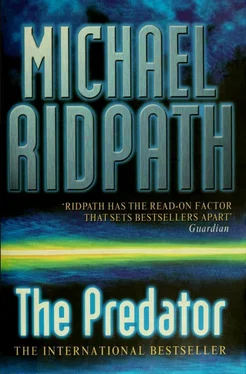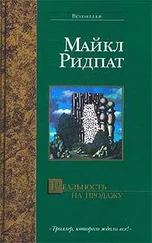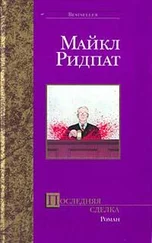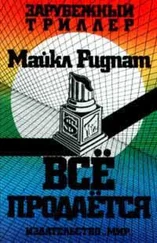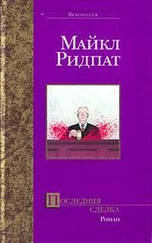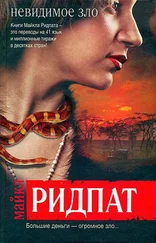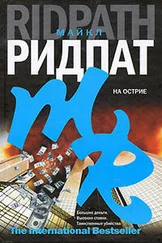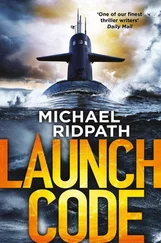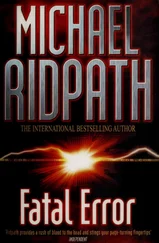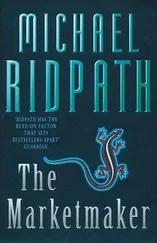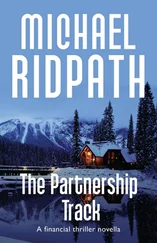‘But this says the price is one hundred and fifteen euros. Wasn’t it a hundred and twenty-nine last month? What happened?’
‘It’s the Eureka Telecom position we bought recently. It was a new issue, but we would only get a price of seventy if we were to sell it today.’
Rudy grimaced. ‘Nightmare. So the fund’s down, what, ten per cent in a month?’ he said, with the hint of a mocking smile. ‘That’s not very good is it?’
‘No. It’s our worst month to date,’ Chris admitted. ‘But remember you invested at a hundred. You’ve still made good money.’
‘We might have made it in the past, but we’re losing it now, aren’t we?’
‘The Eureka Telecom was Lenka’s position.’ Chris hated to say it, but it was true.
Rudy raised his eyebrows. ‘That’s not very gentlemanly, is it? Blaming your partner when she’s not here to defend herself.’
He was getting to Chris. Chris took a deep breath, counted to three, and replied. ‘Lenka has made some very good investments. She’s half the reason that the fund has performed so well overall. But her last one doesn’t seem to be working out.’
‘Do you know why she bought it?’ Rudy asked.
It was a good question, testing the level of communication between them and, by implication, how much Chris knew about what Lenka did. A good question that Chris couldn’t answer. ‘She bought it while I was away on holiday.’
‘So it’s fair to say that you know nothing about the fund’s biggest position. The position that’s giving you most trouble?’
‘I’m finding out,’ said Chris.
Rudy shook his head. ‘Finding out. I’m not sure Amalgamated Veterans should be financing your learning curve.’
‘Trust me, Rudy. I will make you money,’ Chris said.
Rudy chuckled. ‘Like you made Bloomfield Weiss money?’
Suddenly it all became clear to Chris. He was here so Rudy could enjoy rubbing his nose in the fact that his future was in Rudy’s hands. Rudy would toy with him, then go in for the kill. He could draw out the process for quite a while before he said no. Well, Chris had insisted on the meeting, so in a way it was his own fault. But his pride couldn’t let Rudy get away with it.
He stood up and held out his hand. ‘Thank you for investing with us, Rudy. But I think from now on the Carpathian Fund will get on better without you.’
Rudy, looking disappointed, shook the outstretched hand.
‘I’ll see myself out,’ Chris said, leaving the office.
A waste of time.
Chris sat on the Amtrak from Hartford to New York, fuming. He had travelled thousands of miles to see Rudy, only to be abused and humiliated. He should have known. After all, Rudy had made clear his lack of enthusiasm to see him. But he had had to try. It was only by seeing Rudy face-to-face that he could be absolutely sure there was no hope of getting him to change his mind.
What now? Sell bonds at the bottom of the market? Give up? Close down Carpathian? Perhaps the market would bail him out this time. Perhaps, when he got back to London, there would be a rally in the junk market, a big buyer of Eureka Telecom bonds, or an announcement on the expansion of the European Union.
Once again, he was relying on the fickleness of the markets to survive: he hated that.
Once again, he felt helpless. But this time, his mind didn’t go back to the disaster at Bloomfield Weiss, but to another time, twenty years before.
He was eleven. His father had been dead for nine months. The lives of his mother, his younger sister and himself had changed dramatically. They had moved house, from a semi-detached in a nice cul-de-sac, to a flat on the seventh floor of a tough tower block. His mother went out to work in the local VG Stores during the day and had taken on night-shift work at a warehouse three days a week. Although she was proud of him for getting into grammar school, even that would bring more expense. But despite the lack of sleep, the worry about money, the red-rimmed, fatigue-darkened eyes, he never saw her cry. She always had time for him and Anna, to listen to their fears, to comfort them. At eleven, Chris had found that he once again needed to feel the warmth of his mother’s arms, and they were always there.
Until one evening, when he left school late, and met her outside the shop. Anna was playing at a friend’s house. They walked home rapidly, chattering together, and took the stinking lift daubed with graffiti up to the seventh floor. Their flat was at the end of the walkway. As they approached, his mother suddenly quickened her pace and then broke into a run. Chris followed. The front door was swinging open. Inside, the flat was trashed. Chris’s mother ran to the chest of drawers where he knew she kept a lot of his dad’s stuff. The drawers were open. She stood silently staring at the mess inside. Tentatively, Chris joined her. His dad’s watch was gone. So was his wedding ring. So were several chess medals, worth nothing to anyone but Chris’s mum. Their wedding photograph lay on the floor, the glass broken, the print ripped.
Her shoulders heaved, and she let out a kind of animal howl. Then she began to sob. Scared, and unsure what to do, Chris grabbed hold of her and led her back to the bed. She began to bawl like a child, tears streaming down her face. Chris’s eyes stung, but he was determined to hold back the tears, be the one to support her for once. He clung tightly to her shoulders, hoping she would quieten down. She pressed her face into his chest and wept.
Eventually, much later, she stopped. She lay still for several minutes, Chris unwilling to disturb her. Then she sat up on the bed and turned to him, her face puffy and damp with tears, her dark curly hair, usually so carefully tamed, a mess.
‘You know what, Chris?’ she said.
‘Yes, Mum?’
‘Things can’t get any worse than they are right now, can they? It’s just not possible.’ She sniffed, and from somewhere she summoned a quivering smile. ‘As long as you and me and Anna stick together and help each other, they can only get better. So come on. Let’s get this mess tidied up.’
And she was right. Eventually things had got better. The flat was cleared up. The pain of the loss of his father became a persistent ache. She found a better-paying job in a travel agency, and was able eventually to afford a small house for them. Anna married and had two kids. Chris went to university. She’d done it. She’d pulled through.
So would he.
The train drew into Penn Station and Chris took a taxi downtown to Bloomfield Weiss. He remembered the thrill of anticipation he had felt that morning ten years before when he had first entered the building with Duncan and Ian. He took the lift up to the forty-fifth floor. And, just like that first day, Abby Hollis was waiting for him.
She had changed little. She was wearing a white blouse and her blonde hair was tied severely back. But she was chewing gum, and she smiled when she saw Chris.
‘Well, how are you doing? Good to see you.’ She held out her hand, and Chris shook it. ‘Come through to the floor. It’s quiet enough at the moment. We can talk there.’
She led Chris through the clutter of desks, chairs, bins, jackets, papers and people towards the far corner of the room.
Chris looked around him. ‘This hasn’t changed much,’ he said.
‘Management keep on talking about getting a new one, but there’s not much point. This is still where it all happens on Wall Street.’
If that was true, then there was nothing happening on Wall Street at that particular moment, which wasn’t too surprising for four o’clock on a Monday afternoon. The room was crowded, but those on the phone looked casual and unhurried, and most people were staring at their screens, the newspaper, or simply into space. There was the odd cluster of large men in white shirts goofing off. Somehow, it all seemed less intimidating than it had ten years before. Chris no longer expected someone to scream at him at any second to go and get a pizza. In fact, he saw a couple of frightened trainees squatting at the edge of a row of desks that he could scream at himself if he felt like it. He didn’t.
Читать дальше
